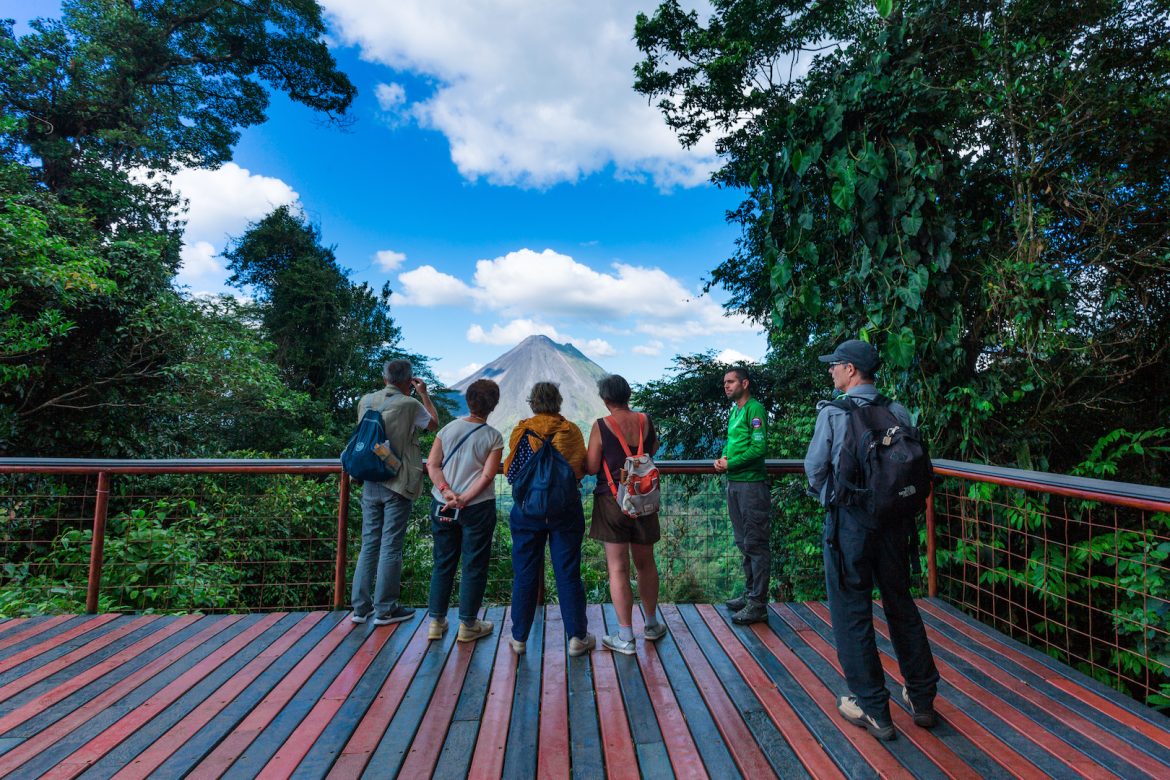In a significant stride towards inclusivity and diversity, the United States Agency for International Development (USAID) in collaboration with the International Organization for Migration (IOM) is rolling out a series of free training sessions aimed at enhancing the integration of immigrants into Costa Rica’s thriving tourism industry. This initiative, endorsed by the National Chamber of Tourism (CANATUR), is set to reshape the landscape of employment and community integration for immigrants in one of Central America’s most visited destinations.
Bridging Gaps: Training for a Sustainable Future
The program, meticulously designed to support entrepreneurs in harnessing the potential of immigrant employees, not only aims to bolster the operational standards of tourism businesses but also enhances community cohesion. The training is structured around comprehensive modules that cover an array of critical topics including basic migration concepts, human rights, ethical hiring practices, and the complex migratory context within Costa Rica.
Setting Standards in the Tourism Industry
USAID has long been at the forefront of promoting sustainable development across the globe, and this initiative is part of its broader mission to ensure that economic development, particularly in sectors like tourism, is inclusive and sustainable. By educating business owners and local communities about the importance of integrating immigrants ethically, the program aims to elevate the overall quality of services within the tourism sector while ensuring compliance with international labor standards.
The Curriculum: A Comprehensive Approach
The training curriculum is tailored to address the unique challenges and opportunities presented by the tourism industry in Costa Rica. Participants will be equipped with knowledge about the various migratory categories, identifying immigrants in vulnerable situations, and the importance of creating a supportive work environment that respects the rights and dignity of every worker.
Diana Cartier, the IOM representative in Costa Rica, emphasized the dual benefits of such initiatives, stating, “These training sessions are designed not only to educate but also to inspire business owners to adopt labor practices that foster an inclusive, fair, and respectful working environment. This approach aligns with the 2030 Agenda for Sustainable Development and supports global migration policies aimed at enhancing the social and economic fabric of host communities.”
Training Schedule and Accessibility
Scheduled to commence on Wednesday, June 5, the training sessions will span across various key locations in Costa Rica, including San Carlos in Alajuela Province, Liberia in Guanacaste Province, Limón City in Limón Province, Jacó Beach in Puntarenas Province, Heredia City in Heredia Province, and San José City in San José Province. Each session, lasting three hours, promises a deep dive into the practical aspects of managing and supporting a diverse workforce.
The program is open to all CANATUR-affiliated tourist business owners and is free of charge, underscoring USAID and IOM’s commitment to accessible and impactful education. Interested parties are encouraged to reach out via the Business Alliance for Development line to learn more about how they can participate.
The Bigger Picture: Migration and Security
In the backdrop of this progressive training initiative, Costa Rica continues to navigate the complex dynamics of migration and national security. As of April 2024, the General Directorate of Migration has reported the deportation of 350 individuals involved in criminal activities or those posing security risks. This highlights the delicate balance the country strives to maintain between welcoming migrants and ensuring the safety of its citizens and visitors.
A Call for Inclusive Policy
The launch of this training initiative arrives at a crucial time when migration and the rights of migrants are hot topics on the global stage. President Rodrigo Chaves-Robles’s recent comments regarding asylum policies for African migrants seeking refuge underscore the need for comprehensive and inclusive migration strategies that not only address security concerns but also embrace the potential of migrants to contribute positively to the host countries’ economies and cultures.
A Step Towards Inclusive Growth
The joint effort by USAID and IOM to integrate immigrants into Costa Rica’s tourism sector is not just about compliance with labor laws or enhancing service standards; it is a bold step towards realizing a vision where economic growth and human rights go hand in hand. For tourists visiting Costa Rica, the enriched cultural tapestry that this initiative helps weave could mean a more vibrant, inclusive, and memorable travel experience.

